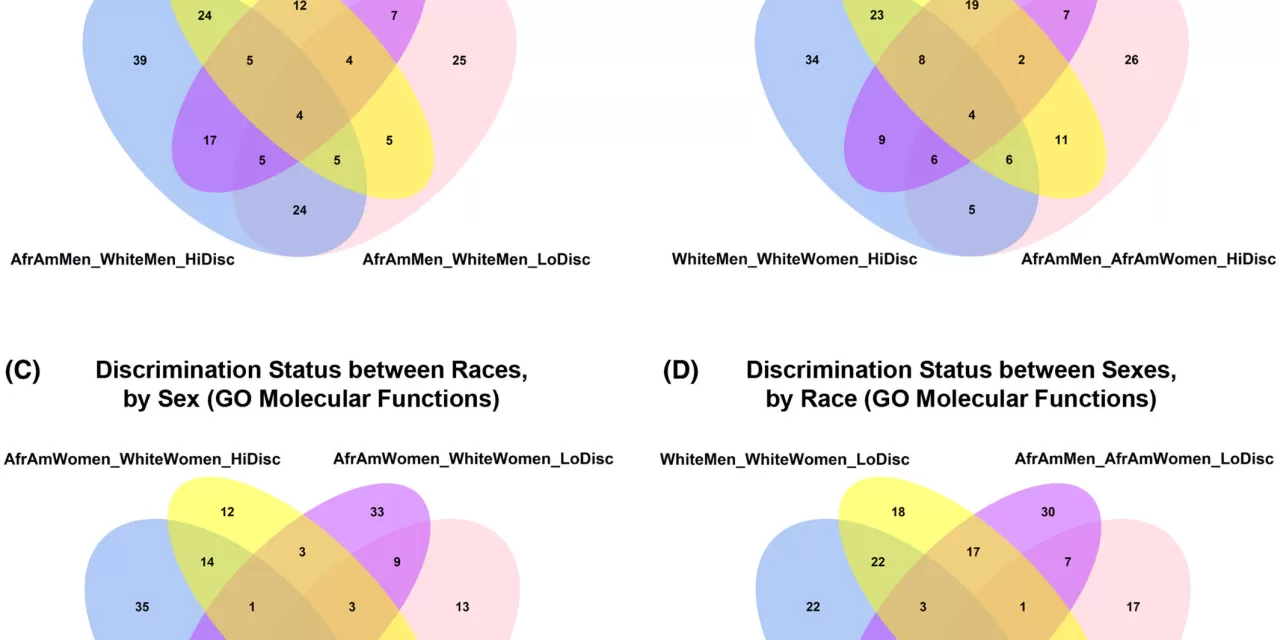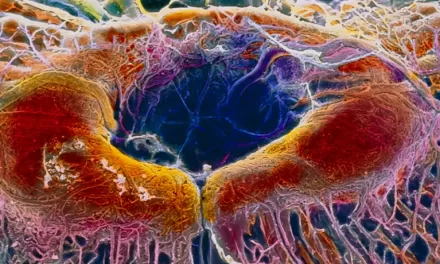A new study published in The FASEB Journal suggests that the perception of discrimination is associated with differences in human gene expression, with notable variations by race and sex. The research provides fresh insights into how social experiences may impact biological processes, including inflammation and immune function, potentially influencing long-term health outcomes.
Numerous studies have highlighted the impact of environmental and social factors—collectively known as the exposome—on gene expression. Negative experiences such as poverty, stress, and poor living conditions have been linked to an increased risk of chronic diseases. Previous research also identified a pattern called the conserved transcriptional response to adversity (CTRA), which involves increased inflammation gene expression and decreased immune gene expression in individuals facing social hardships like loneliness and low socioeconomic status. However, prior studies had not fully examined racial differences in CTRA gene expression.
Investigating the Impact of Discrimination
Researchers from the National Institute on Aging, National Institutes of Health; Kansas City University; New York University; University of Houston; and Rutgers University sought to explore how discrimination shapes gene expression. Previous studies had already linked perceived discrimination in African American adults to biological markers such as oxidative stress in red blood cells, impaired kidney function, and greater white matter lesion volume. The latest research expands on these findings by analyzing gene expression differences.
The study examined middle-aged African American and white men and women living in urban Baltimore, Maryland. Participants completed questionnaires about their experiences of racial and lifetime discrimination, after which researchers analyzed total RNA extracted from immune cells in their blood samples.
Key Findings and Biological Implications
While no significant variations in gene expression were found when comparing individuals with high and low overall perceived discrimination, a more detailed analysis of the high-discrimination group revealed notable differences. Among these individuals, African American and white participants showed differential expression in 28 genes, many of which are associated with immune response, inflammation, and tumor development. Additionally, when comparing African American and white men, as well as African American and white women, gene expression levels varied significantly.
Further analysis revealed differences in biological pathways and processes related to these genes. Many of the impacted genes were associated with diseases and conditions that disproportionately affect certain racial and sex groups. These findings underscore the complex interplay between social experiences and biological mechanisms, potentially contributing to disparities in health outcomes.
Broader Implications for Health Research
The study’s authors emphasize the importance of considering race, ethnicity, and discrimination within the broader context of exposome research. “Our data highlight the importance of a comprehensive exposome approach that includes race and ethnicity and discrimination, as well as systemic and structural racism that influence the internal cellular environment to understand the role of external environmental factors in health and disease,” they wrote.
These findings add to the growing body of evidence that social determinants of health extend beyond traditional economic and lifestyle factors, influencing fundamental biological processes. By understanding these relationships, researchers may develop more targeted strategies to mitigate the health impacts of discrimination.
Disclaimer: This article is based on the study published in The FASEB Journal and does not constitute medical or health advice. The findings represent research conclusions at the time of publication and may be subject to further investigation and interpretation. Individuals concerned about health issues related to discrimination should consult qualified healthcare professionals.
Reference: Natasha L. Pacheco et al, Genome‐wide transcriptome differences associated with perceived discrimination in an urban, community‐dwelling middle‐aged cohort, The FASEB Journal (2025). DOI: 10.1096/fj.202402000R











